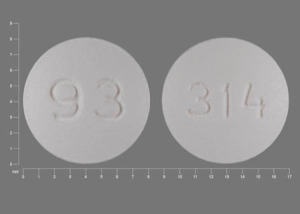Ketorolac and Alcohol/Food Interactions
There are 2 alcohol/food/lifestyle interactions with ketorolac.
Ketorolac Alcohol (Ethanol)
Moderate Drug Interaction
Ask your doctor before using ketorolac together with ethanol (alcohol). Do not drink alcohol while taking ketorolac. Alcohol can increase your risk of stomach bleeding caused by ketorolac. Call your doctor at once if you have symptoms of bleeding in your stomach or intestines. This includes black, bloody, or tarry stools, or coughing up blood or vomit that looks like coffee grounds. It is important to tell your doctor about all other medications you use, including vitamins and herbs. Do not stop using any medications without first talking to your doctor.
Switch to professional interaction data
Ketorolac High Blood Pressure (Hypertension)
Major Potential Hazard, Moderate plausibility
NSAIDs - fluid retention
Fluid retention and edema have been reported in association with the use of nonsteroidal anti-inflammatory drugs (NSAIDs), including some topical formulations. NSAIDs (including topicals) can lead to new onset of hypertension or worsening of preexisting hypertension, either of which can contribute to the increased incidence of cardiovascular events. NSAIDs should be used with caution in patients with preexisting fluid retention, hypertension, or history of heart failure. NSAIDs should be avoided in patients with severe heart failure unless the benefits are expected to outweigh the risk of worsening heart failure; if an NSAID is used in such patients, they should be monitored for signs of worsening heart failure. Blood pressure and cardiovascular status should be monitored closely during the initiation of NSAID treatment and throughout the course of therapy.
Switch to professional interaction data
Ketorolac drug interactions
There are 385 drug interactions with ketorolac.
Ketorolac disease interactions
There are 11 disease interactions with ketorolac which include:
- GI toxicity
- platelet aggregation inhibition
- renal dysfunction
- asthma
- fluid retention
- GI toxicity
- rash
- thrombosis
- anemia
- hepatotoxicity
- hyperkalemia
More about ketorolac
- ketorolac consumer information
- Check interactions
- Compare alternatives
- Pricing & coupons
- Reviews (465)
- Drug images
- Latest FDA alerts (10)
- Side effects
- Dosage information
- Patient tips
- During pregnancy
- Support group
- Drug class: Nonsteroidal anti-inflammatory drugs
- Breastfeeding
Related treatment guides
Drug Interaction Classification
| Highly clinically significant. Avoid combinations; the risk of the interaction outweighs the benefit. | |
| Moderately clinically significant. Usually avoid combinations; use it only under special circumstances. | |
| Minimally clinically significant. Minimize risk; assess risk and consider an alternative drug, take steps to circumvent the interaction risk and/or institute a monitoring plan. | |
| No interaction information available. |
Further information
Always consult your healthcare provider to ensure the information displayed on this page applies to your personal circumstances.


